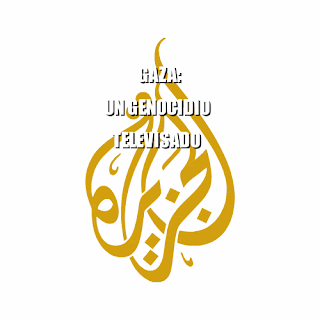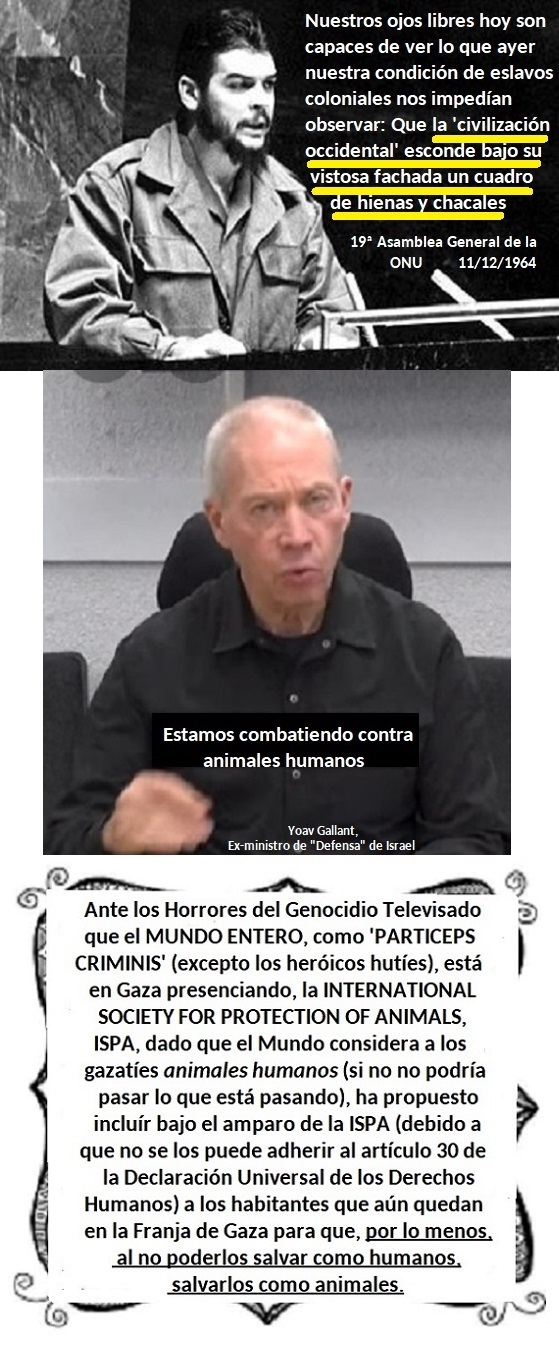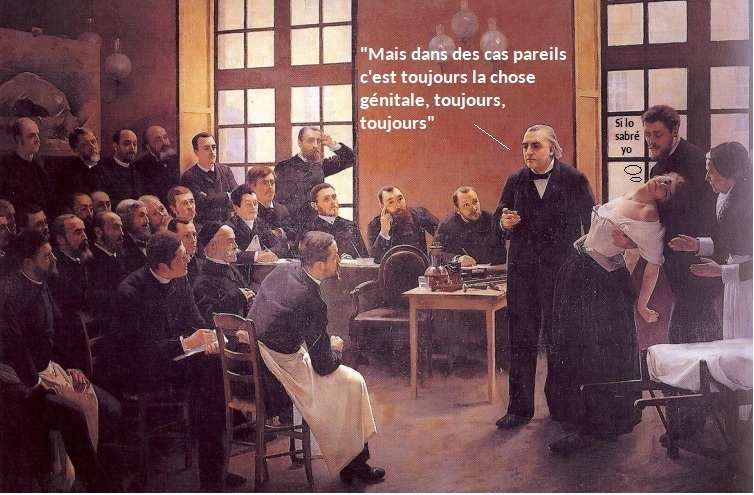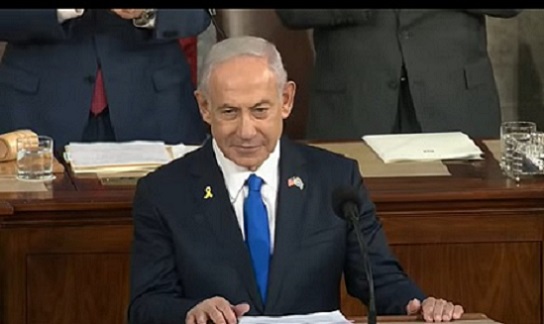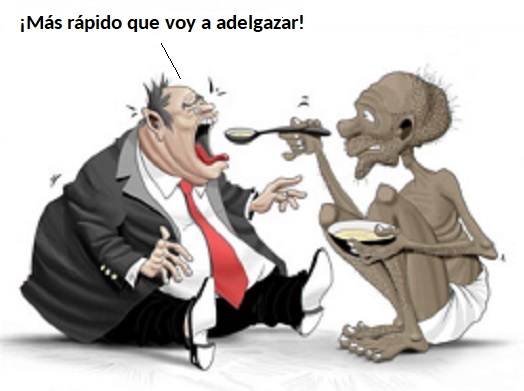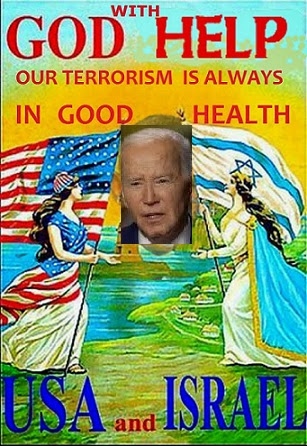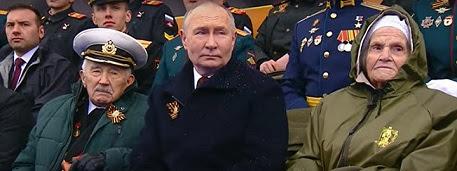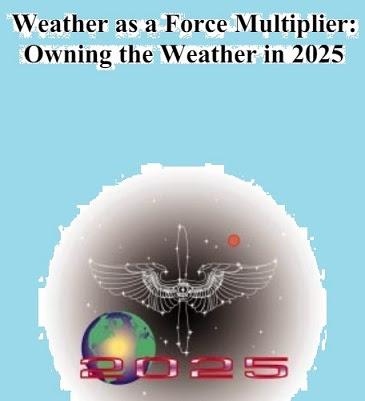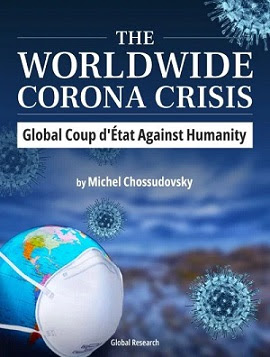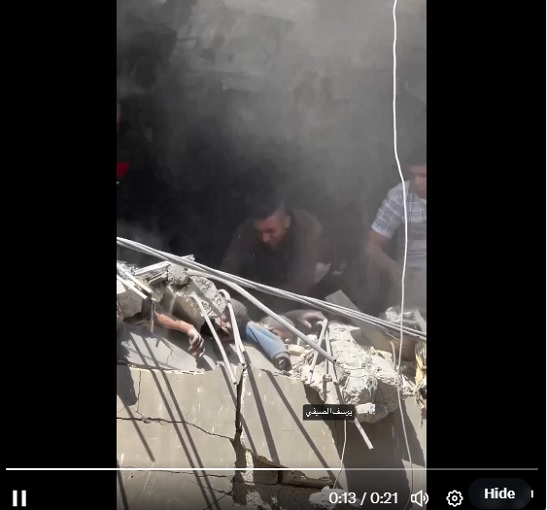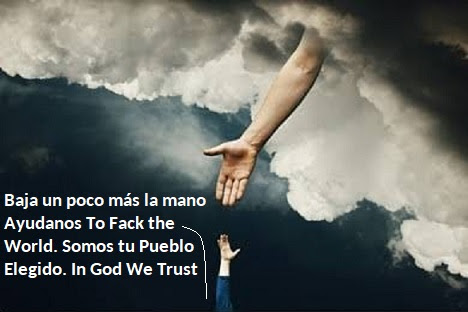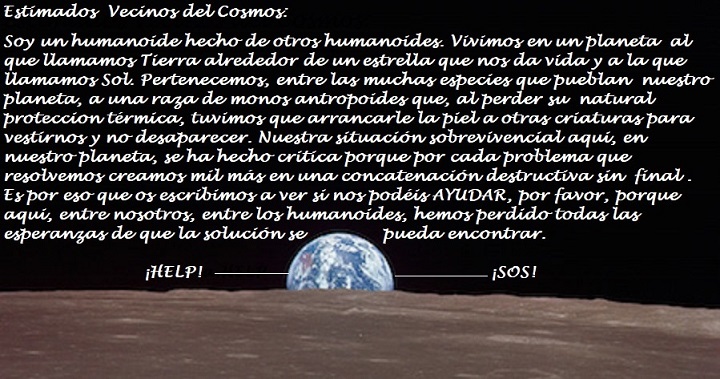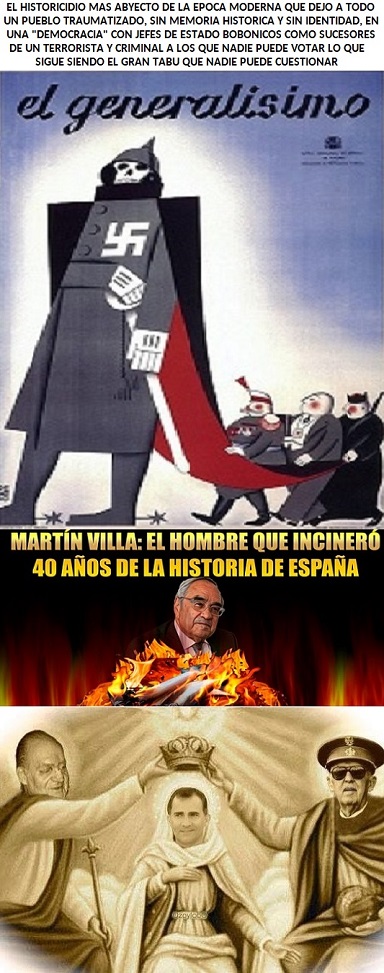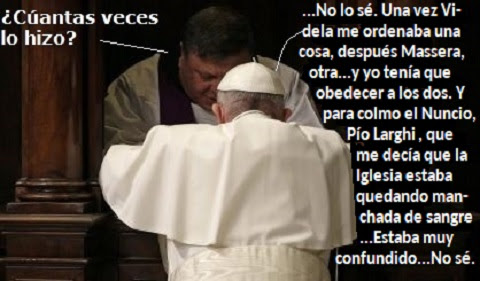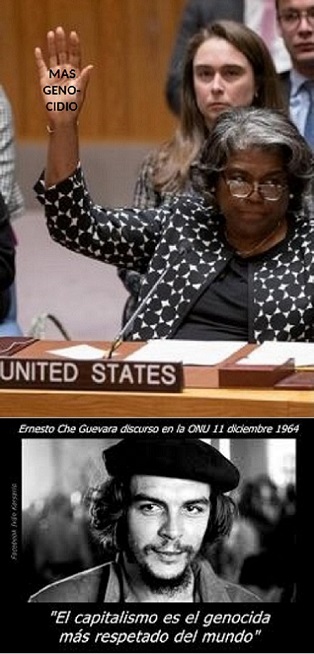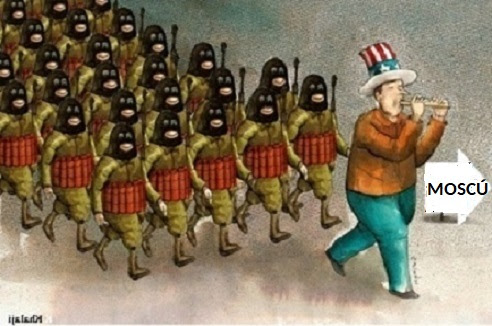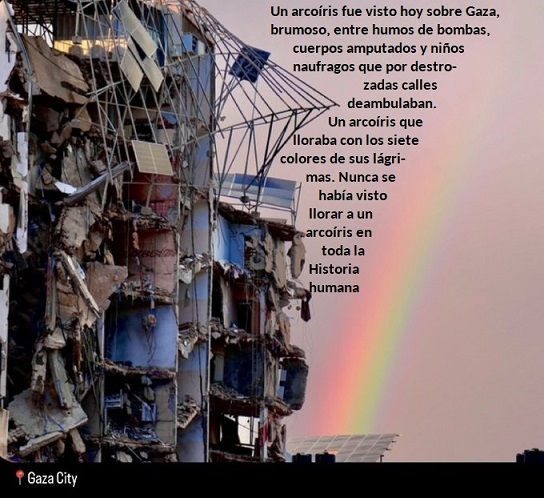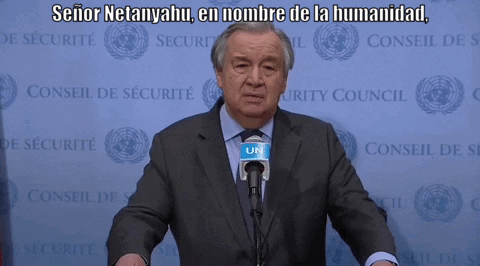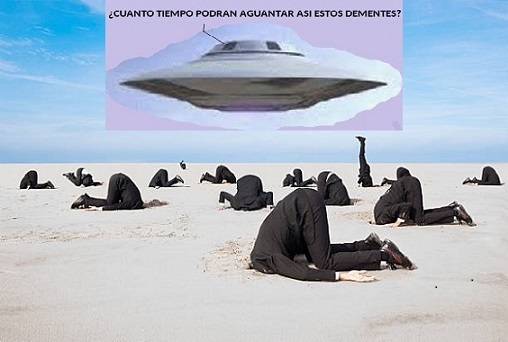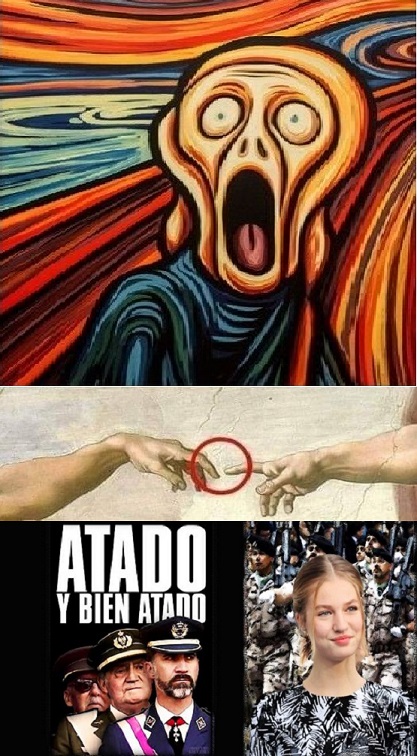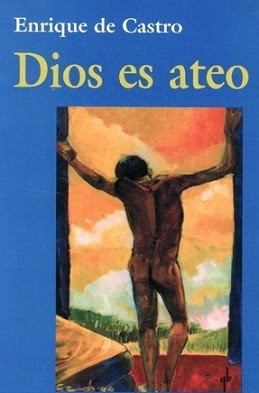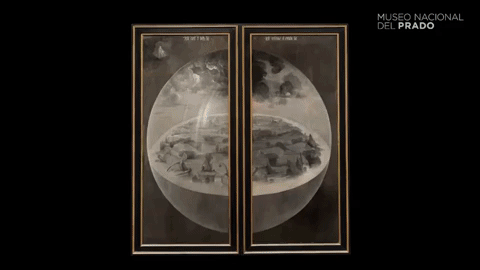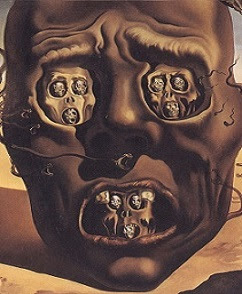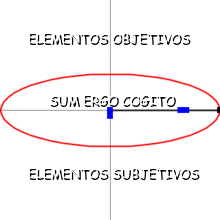Sunday, April 28, 2019
Saturday, April 27, 2019
PABLO HASEL DERRIBA LOS 7 CLÁSICOS TÓPICOS QUE SIEMPRE SE ESGRIMEN PARA VOTAR EN LAS ELECCIONES BURGUESAS
Tenemos --debemos-- que darle voz a Pablo Hasel, revolucionario con perínclita y ejemplar conciencia de clase porque ella viene definida, no en la plano teórico y catacúmbico de un blog, no en la palabrerería que se la lleva el viento, sino en la LUCHA, la ACCION, el RIESGO, la CARCEL. Y ello lo sitúa en los IMPRESCINDIBLES de Bertolt Brecht. Su delito, su excelso delito: desenmascarar a la fascistoide Dictadura Capitalista. Su Principio de la Razón Suficente (Principium Rationis Sufficientis) es muchísimo más que político, es, en esencia, el único faro que puede llevar al Barco Humano afuera de la Tempestad del presente y guiarlo a salvo hasta unos astilleros dónde, primero, pueda ser reparado del daño sufrido y, segundo, ponerlo de nuevo a navegar en un mar donde los intereses privados queden supeditados a los sagrados e intocables intereses colectivos.
No, muchas personas dieron la vida por una verdadera democracia, la que el fascismo aniquiló con un golpe genocida. Todos esos derechos y libertades democráticas que arrasaron, aún no los hemos recuperado y no ha habido ruptura alguna con el fascismo. ¿Los luchadores contra el fascismo querrían que legitimemos una legalidad que nace de ese golpe en la que ni un solo criminal fascista ha pagado por sus crímenes? El boicot activo a su farsa electoral también sirve para denunciar eso. El Frente Popular se unió bajo un programa que no tiene nada que ver con las migajas que propone la “izquierda” domesticada de IU-Podemos que ni siquiera defienden con firmeza. El FP luchaba por la liberación de todos los presos políticos antifascistas, la Amnistía total que conquistaron. Ningún partido electoralista lucha por esta, ¿cómo van a ser antifascistas quienes olvidan a las antifascistas presas? Desde la llegada del fascismo al poder, no van a permitir cambios profundos como los del FP desde las urnas.
No, la ultraderecha gana siempre porque desde el 39 tienen el verdadero poder que no parte del gobierno, controlan y forman parte de los pilares del régimen: ejército, tribunales, cuerpos represivos, monarquía, oligarquía, CNI, etc. Eso sigue igual haya el gobierno que haya, basta recordar los gobiernos anteriores del PSOE cuyas políticas han sido casi idénticas a las del PP, en algunos casos aún peores en cuanto al terrorismo de Estado. ¿Acaso ha habido cambios profundos con el gobierno actual del PSOE sostenido por Podemos? Ni siquiera han derogado la reforma laboral o la ley mordaza, como prometieron.
La “izquierda” del régimen no pretende poner fin a los tribunales fascistas que nos encarcelan hasta por contar hechos probados, tampoco a los cuerpos represivos cuyo sueldo han aumentado. Qué decir de su falta de combatividad respecto a la monarquía, la Iglesia, etc. Respetan su legalidad, empuñan la misma bandera rojigualda que VOX y el resto, no luchan por la salida de la UE-OTAN imperialistas, carecen de solidaridad con represaliados, no denuncian el terrorismo patronal ni quieren poner fin a la explotación, etc. Si no nos quedamos en los discursos y analizamos los hechos, veremos que las diferencias no son tan abismales en cuestiones fundamentales. El fascismo no empieza ni acaba en VOX, al que el régimen utiliza y da bombo a todas horas para blanquear al resto de partidos y fomentar la participación en las urnas por el miedo, pero Podemos ha dicho que los tratará con cordialidad y no exige la libertad de la antifascista recién encarcelada por acudir a una manifestación contra estos.
Urge la necesidad de ver la diferencia entre gobierno y régimen: todos los partidos, como lo han reconocido los empresarios más poderosos como el dueño de Mercadona o el dirigente de la patronal, sirven a las mismas políticas capitalistas que no ponen en riesgo. La oligarquía financiera, quien realmente ostenta el poder, es quien siempre gana. En todas las papeletas deberían aparecer los logos de bancos y grandes empresas. ¿Vamos a votarlas o mejor boicotearlas y no darles nuestro permiso para machacarnos?
Por eso es absurdo lo que plantea el Front Republicà diciendo presentarse para “impulsar la ruptura” y bloquear el gobierno. Al régimen no se le puede bloquear votando, haya gobierno formado o no, seguirá funcionando igual. En cuanto a la ruptura, no tienen plan alguno para romper con el Estado y acaban haciendo seguidismo del procesismo.
Necesitamos un cambio de Estado en el que tengamos nosotros el poder y no una minoría de parásitos explotadores, no de gobierno que perpetúe el mismo Estado.
Bajo esa premisa, llevan 40 años dejándonos cada día con menos, habrá que plantearse que no es efectivo. No podemos conformarnos con la mierda más perfumada, no merecemos mierda y punto. ¿Quiénes han alejado más la lucha de las calles que necesitamos para conquistar derechos y libertades? La “izquierda” domesticada. En varias de las principales ciudades donde Podemos ha tenido alcaldías, no han garantizado ni las pequeñas mejoras que prometieron y por las que ganaron jugando con personas desesperadas. Por lo tanto, eso de que son el mal menor, no cuadra. En todo caso, votar a un supuesto “mal menor”, implica aceptar el mal y no combatirlo.
En este Estado, hay una ley de partidos que ilegaliza a los partidos que realmente luchan por derechos y libertades democráticas de forma consecuente. El partido que más ha defendido nuestros intereses y que ha demostrado con hechos ser comunista y no traicionar, el PCE (r), es ilegal y muchos de sus militantes han sido condenados a 11 años de prisión exclusivamente por militancia política. Su secretario general, Manuel Pérez Martínez (camarada Arenas) sufre una cadena perpetua encubierta y por desatención médica han exterminado y exterminan a sus militantes como Isabel Aparicio. Por lo tanto, ni pueden presentarse ni hacer una labor política abierta, con el silencio o la criminalización de la “izquierda” apoltronada. Votar en este contexto es legitimarlo, porque ningún partido electoralista lo denuncia.
Además, los grandes partidos que tienen oportunidades por no suponer riesgo alguno, reciben cuantiosas sumas de dinero del Estado y un potente altavoz en los medios del capital. Eso jamás sucederá con un partido que realmente nos represente, la oligarquía es asesina, pero no suicida.
No, en todo caso quien no puede quejarse es quien legitima esa farsa y acepta sus reglas corruptas. Si no participamos por denunciar que no tenemos nada que ganar en su circo, precisamente es cuando tenemos la legitimidad para quejarnos. Es como si un equipo va a jugar el partido sabiendo que el árbitro está comprado, si lo sabía antes tendrá menos motivos para quejarse y lógicamente les preguntarán porqué diablos jugaron conociéndolo, que si se plantan y no aceptan jugar por saber el amaño.
Votar en blanco sigue implicando participación, aceptar el timo y decir que esa es una forma que nos otorgan para mostrar rechazo, cuando cuenta como respeto y creencia en estas elecciones como forma de expresión. Otra de sus coartadas para perpetuar
la falsa democracia.
Cierto, no es suficiente con no votar, pero es un paso que amplias masas de la clase obrera y los sectores populares, sepan que ninguno de esos partidos sirven para tener vidas dignas. Boicot activo significa participar en las luchas, organizarse con los métodos de lucha que sean necesarios al margen de partidos y sindicatos que no nos representan. Eso, acompañado de una enorme abstención, dejaría al régimen muy aislado y debilitado.
CONCLUSIÓN:
Rajoy resumió la necesidad de la participación en una frase: “Votad, a quien sea, pero votad”. El Estado necesita poder decir que muchas personas creen en su régimen y que lo demuestran participando. Cuando la abstención se estaba disparando ante la crisis general y de los grandes partidos, el régimen aupó a Podemos y a C’s. Así, rescataron un poco la baja participación y sobre todo calmaron las luchas que empezaban a desarrollarse masivamente en las calles, con un creciente descontento popular que los ponía nerviosos. Ahora aúpan a VOX para que se disparen los votos a un PSOE y Podemos cada vez más tocados con el pretexto de “frenar a VOX”.
Si concluimos que la solución pasa por organizar luchas y la necesaria futura revolución en las calles que ponga fin a este Estado, votar a partidos que la frenan no nos ayuda a avanzar. Por lo tanto, en este contexto en el que no se presenta ningún partido que sirva a esto, si queremos favorecer ese escenario de aún más abstención (ya es muy elevada pese al bombardeo constante a todas horas para que votemos) y luchas en las calles que escapen a su control, es imprescindible el boicot activo. Un 70% de abstención (del que estaríamos cerca o hubiéramos llegado sin la irrupción de “nuevos” partidos) sumado a mucha combatividad en las calles, dejarían al régimen agonizando con una crisis difícilmente sostenible.
..............................
1
“Muchas personas dieron la vida para que podamos votar”
“Muchas personas dieron la vida para que podamos votar”
No, muchas personas dieron la vida por una verdadera democracia, la que el fascismo aniquiló con un golpe genocida. Todos esos derechos y libertades democráticas que arrasaron, aún no los hemos recuperado y no ha habido ruptura alguna con el fascismo. ¿Los luchadores contra el fascismo querrían que legitimemos una legalidad que nace de ese golpe en la que ni un solo criminal fascista ha pagado por sus crímenes? El boicot activo a su farsa electoral también sirve para denunciar eso. El Frente Popular se unió bajo un programa que no tiene nada que ver con las migajas que propone la “izquierda” domesticada de IU-Podemos que ni siquiera defienden con firmeza. El FP luchaba por la liberación de todos los presos políticos antifascistas, la Amnistía total que conquistaron. Ningún partido electoralista lucha por esta, ¿cómo van a ser antifascistas quienes olvidan a las antifascistas presas? Desde la llegada del fascismo al poder, no van a permitir cambios profundos como los del FP desde las urnas.
2
“Si no votamos gana la ultraderecha”
No, la ultraderecha gana siempre porque desde el 39 tienen el verdadero poder que no parte del gobierno, controlan y forman parte de los pilares del régimen: ejército, tribunales, cuerpos represivos, monarquía, oligarquía, CNI, etc. Eso sigue igual haya el gobierno que haya, basta recordar los gobiernos anteriores del PSOE cuyas políticas han sido casi idénticas a las del PP, en algunos casos aún peores en cuanto al terrorismo de Estado. ¿Acaso ha habido cambios profundos con el gobierno actual del PSOE sostenido por Podemos? Ni siquiera han derogado la reforma laboral o la ley mordaza, como prometieron.
La “izquierda” del régimen no pretende poner fin a los tribunales fascistas que nos encarcelan hasta por contar hechos probados, tampoco a los cuerpos represivos cuyo sueldo han aumentado. Qué decir de su falta de combatividad respecto a la monarquía, la Iglesia, etc. Respetan su legalidad, empuñan la misma bandera rojigualda que VOX y el resto, no luchan por la salida de la UE-OTAN imperialistas, carecen de solidaridad con represaliados, no denuncian el terrorismo patronal ni quieren poner fin a la explotación, etc. Si no nos quedamos en los discursos y analizamos los hechos, veremos que las diferencias no son tan abismales en cuestiones fundamentales. El fascismo no empieza ni acaba en VOX, al que el régimen utiliza y da bombo a todas horas para blanquear al resto de partidos y fomentar la participación en las urnas por el miedo, pero Podemos ha dicho que los tratará con cordialidad y no exige la libertad de la antifascista recién encarcelada por acudir a una manifestación contra estos.
Urge la necesidad de ver la diferencia entre gobierno y régimen: todos los partidos, como lo han reconocido los empresarios más poderosos como el dueño de Mercadona o el dirigente de la patronal, sirven a las mismas políticas capitalistas que no ponen en riesgo. La oligarquía financiera, quien realmente ostenta el poder, es quien siempre gana. En todas las papeletas deberían aparecer los logos de bancos y grandes empresas. ¿Vamos a votarlas o mejor boicotearlas y no darles nuestro permiso para machacarnos?
Por eso es absurdo lo que plantea el Front Republicà diciendo presentarse para “impulsar la ruptura” y bloquear el gobierno. Al régimen no se le puede bloquear votando, haya gobierno formado o no, seguirá funcionando igual. En cuanto a la ruptura, no tienen plan alguno para romper con el Estado y acaban haciendo seguidismo del procesismo.
Necesitamos un cambio de Estado en el que tengamos nosotros el poder y no una minoría de parásitos explotadores, no de gobierno que perpetúe el mismo Estado.
3
“Hay que votar a la opción menos mala, el voto útil”
Bajo esa premisa, llevan 40 años dejándonos cada día con menos, habrá que plantearse que no es efectivo. No podemos conformarnos con la mierda más perfumada, no merecemos mierda y punto. ¿Quiénes han alejado más la lucha de las calles que necesitamos para conquistar derechos y libertades? La “izquierda” domesticada. En varias de las principales ciudades donde Podemos ha tenido alcaldías, no han garantizado ni las pequeñas mejoras que prometieron y por las que ganaron jugando con personas desesperadas. Por lo tanto, eso de que son el mal menor, no cuadra. En todo caso, votar a un supuesto “mal menor”, implica aceptar el mal y no combatirlo.
4
“Si no te representa ninguno de los que hay, haz un partido o que el tuyo se presente”
Además, los grandes partidos que tienen oportunidades por no suponer riesgo alguno, reciben cuantiosas sumas de dinero del Estado y un potente altavoz en los medios del capital. Eso jamás sucederá con un partido que realmente nos represente, la oligarquía es asesina, pero no suicida.
5
“Si no votas, no te quejes”
6
“Votar en blanco es la forma de mostrar el desacuerdo”
Votar en blanco sigue implicando participación, aceptar el timo y decir que esa es una forma que nos otorgan para mostrar rechazo, cuando cuenta como respeto y creencia en estas elecciones como forma de expresión. Otra de sus coartadas para perpetuar
la falsa democracia.
7
“La abstención no basta”
Cierto, no es suficiente con no votar, pero es un paso que amplias masas de la clase obrera y los sectores populares, sepan que ninguno de esos partidos sirven para tener vidas dignas. Boicot activo significa participar en las luchas, organizarse con los métodos de lucha que sean necesarios al margen de partidos y sindicatos que no nos representan. Eso, acompañado de una enorme abstención, dejaría al régimen muy aislado y debilitado.
CONCLUSIÓN:
Rajoy resumió la necesidad de la participación en una frase: “Votad, a quien sea, pero votad”. El Estado necesita poder decir que muchas personas creen en su régimen y que lo demuestran participando. Cuando la abstención se estaba disparando ante la crisis general y de los grandes partidos, el régimen aupó a Podemos y a C’s. Así, rescataron un poco la baja participación y sobre todo calmaron las luchas que empezaban a desarrollarse masivamente en las calles, con un creciente descontento popular que los ponía nerviosos. Ahora aúpan a VOX para que se disparen los votos a un PSOE y Podemos cada vez más tocados con el pretexto de “frenar a VOX”.
Si concluimos que la solución pasa por organizar luchas y la necesaria futura revolución en las calles que ponga fin a este Estado, votar a partidos que la frenan no nos ayuda a avanzar. Por lo tanto, en este contexto en el que no se presenta ningún partido que sirva a esto, si queremos favorecer ese escenario de aún más abstención (ya es muy elevada pese al bombardeo constante a todas horas para que votemos) y luchas en las calles que escapen a su control, es imprescindible el boicot activo. Un 70% de abstención (del que estaríamos cerca o hubiéramos llegado sin la irrupción de “nuevos” partidos) sumado a mucha combatividad en las calles, dejarían al régimen agonizando con una crisis difícilmente sostenible.
(Pablo Hasel)
Friday, April 26, 2019
PADRE E HIJO SE DIVIERTEN Y RECIBEN PREMIOS...
PADRE E HIJO SE DIVIERTEN
Y RECIBEN PREMIOS,
Y ENCIMA, AQUI, EN ESPAÑA,
SE LES PAGA UN SUELDO
DIVERSION
Thursday, April 25, 2019
SPANISH POLITICS IS USA GEOPOLITICS--ESPAÑA ATADA Y BIEN ATADA AL CARRO DEL IMPERIALISMO
 |
"What can maintain alive in us
the hope for a better future,
is the heroic people of Spain
in their struggle for the freedom
a the dignity of the humanity"
Albert Eisntein
|
SPANISH POLITICS IS US GEOPOLITICS
By Aidan O’Brien
Global Research, April 24, 2019
The sun is hot in Spain this time of year. The Catholics too. Semana Santa (Holy Week) reminded us that Spain was once the world’s preeminent source of religious fundamentalism.
Today, in contrast, it simply copies the nihilistic fundamentalism which flows out of Wall Street. It now is the source of nothing and believes in nothing. (...) Spain has been castrated, neutralized and mediocritized. The proof are its politicians. And for the powers that be, that’s just fine.
On April 28 Spain is holding a general election. It will be the fourth since Spain’s version of US capitalism began to implode at the end of 2008.
Finance capital, and that hot sun, had created a property bubble the size of California. All of which turned into political crap, in 2012, when Spain had to submit to the same “economic medicine” which was crushing Greece at that precise moment – the Troika (the European Commission, the European Central Bank and the International Monetary Fund).
Ever since 2012 Spain has been drifting nowhere. The reason being that post-Franco democracy is moribund. Or maybe it was never alive to begin with.
 |
| Esta foto-compuesta es nuestra No del autor del artículo |
Ever since the first post-Franco election, in 1977, these legacies of Spanish fascism have been hiding behind manufactured political parties: first the Union of the Democratic Centre (UCD) and then the Socialist Workers’ Party (PSOE) and the Popular Party (PP).
This political cage, however, has been battered and discredited by the economic crisis that engulfed Spain after 2008. The solution to the financial crash, for the post-Franco establishment, has been obedience to the financial markets – the Troika. And disobedience to the people of Spain. The word – austerity – sums up this treasonous solution.
In response, the Spanish people came out onto the streets. In 2011 the 15-M (May 15) Movement mobilized millions of ordinary Spaniards. Indignant about the naked appearance of financial fascism, the voiceless people took over the plazas of Spain. It was a ‘Spanish Spring’.
The streets of Madrid had picked up the vibe of the Mediterranean, that then was emanating from Tunis and Cairo. However, the Spanish government were picking up the vibe of the CIA. And sent the cops into the plazas – to crack heads. The powers that be didn’t want freedom in the Mediterranean. Least of all in Spain.
And this geopolitical context is the key to understanding contemporary Spanish politics. Spain is a strategic gateway to many worlds: the Mediterranean, the European, the African and the Latin American. Because of its geographic location and history, Spain is a bridge. On the grand chessboard, Spain is more valuable than a pawn. And for this reason, Spain’s fate is not in Spain’s hands.
Franco knew this. During the Spanish Civil War (1936-39) he placed his fate not in the hands of the Spanish nation, but in the hands of Italian fascists, German Nazis and Moroccan mercenaries. And after World War Two, he instinctively turned to US imperialism. The once “great” Spain became a US colony.
“In 1953 Franco signed the Pact of Madrid…. The pact consisted of three separate, but interdependent, agreements between Spain and the United States. It provided for mutual defense, for military aid to Spain, and for the construction of bases there.” (El País)
This innocuous looking agreement is the deep foundation of today’s Spanish politics. Next to it, everything else is superficial – even the king and the banks and Catalonia. Franco’s gift to Spain was nothing less than a pact with the devil. It was an agreement with permanent war. It was a fascist pact.
The pact manifested itself immediately. In the mid 1950s, the US built its own ‘rock of Gibraltar’ near the city of Cádiz: the naval port of Rota. And it moved into the airbase of Morón – near the city of Seville. From these extremely strategic positions the US could access Africa and the Mediterranean Sea within minutes. And it could reach the Middle East within a few hours.
Meanwhile, the secretive CIA teamed up with Franco’s secretive state. So much so, that the great CIA whistleblower, Philip Agee, wrote in his account of 1970s Europe – ‘On The Run’: “The more they tried to get me to Spain, the more suspicious I was. I knew the Agency and the Franco services were as thick as thieves.”
The death of Franco changed nothing. Spain’s transition to ‘democracy’ was managed carefully – so as not to disturb US imperialism. In an important 1976 article, La CIA, Aqui, Ahora (in a Spanish magazine called Cambio 16), Spain’s place in the Empire is brilliantly described:
“….neutralism in Spanish foreign policy… is the real danger for the USA…Washington’s new strategic planning passes right through Spain, since the Iberian Peninsula is an extension of the African-Atlantic shelf. The Sahara, Angola, the independence movements in the Azores and Canaries, the Paris-Madrid-Rabat axis all form part of the same story….And it is no longer a matter of facing up to the Soviets, but [of blocking] the process of normalization in international relations…
…With the handover of [Western Sahara] to Morocco, the [CIA] gained the isolation of Algeria, the division of the Third World, and the security of the monitoring units on Ceuta and Melilla and the base on Tenerife….
Already the Americans have secured the oil route that passes through Las Palmas and along the coast of Angola and the monitoring of the Soviet Mediterranean fleet from the south, thus reinforcing NATO’s most vulnerable zone. And all of this would be put at risk if Spain were to become truly neutral.
…the United States would not be prepared to tolerate a Mediterranean Switzerland.”
And is the 2019 relationship between Spain and the USA any different? No. Indeed recent events suggest it has become much darker.
A 2015 El País headline stated: “Spain to negotiate turning Morón into US base for anti-jihadist operations“. While another El País headline that same year read: “US and Spain to sign deal making Morón main base for Africa operations”.
And in April 2017 US navy ships – based in Rota, Spain – attacked Syria without informing the Spanish government beforehand. In fact, Spain’s second class status, even within Spain, was underlined in February this year (2019) when the CIA brazenly broke into the Madrid embassy of North Korea and terrorized its occupants.
Will the Spanish government pushback? No. It continues to play the role the US has assigned for it. For example, when the US openly pressed for regime change in Venezuela last January, Spain’s socialist Prime Minister, Pedro Sánchez, immediately supported the Americans. This being significant because Spain automatically leads official European opinion when it comes to Latin America.
So what’s the point of the April 28 Spanish general election? Its ideological. Its a lie or a joke the Spanish state tells itself so as to cover up its own impotence. The Spanish people, however, are beginning to feel it.
The new left leaning political party, Podemos (We Can), emerged out of the 2011 ‘Spanish Spring’ and has upset the established order. But it is fighting a rigged voting system that favors the conservative countryside – at the expense of the more critical ‘Podemos cities’. And it is being shadowed now by two new ‘made to measure’ (CIA?) right wing parties: Ciudadanos (Citizens) and Vox (Voice).
As the US gears up today for a few more wars (Iran and Venezuela) there seems to be no escape, for Spain, from its deep colonial status. Even Podemos don’t seem to be aware of the depth of the problem. The Spanish Spring complained about the EU straitjacket (austerity) but failed to see the US straitjacket (imperialism).
The Americans, therefore, seem to have Spanish sovereignty truly trapped. The basic fact is that Spain joined the USA (1953) before it joined the EU (1986). So for Spain to be free, it is necessary to go back to the source of the slavery: the 1953 Pact of Madrid. If Spain destroys this then the liberation will follow: the liberation from the US, the EU and the King. The Republic of Spain would be reborn. But is any Spanish politician offering this truly post-Franco vision?
:::::::::::::::::::
Three days later, on 10 August, Mr. Huston of the Glenn L Martin [Aircraft] Company of Baltimore, Maryland, petitioned the government to hear consider his position regarding the delivery of eight bomber airplanes that the Spanish Republic had contracted them to build. On the some day, after telephone conversations with President Roosevelt, Philips answer Mr. Huston by send him the mentioned law of August 7 and adding that the fabrication of such bombers for the Republic "would not follow the spirit of the Government's policy" [39].
The following day, on 1 August, the Department of State formally announced that "It was the policy of the United States government trot to interfere in the internal affairs of other countries, thus imposing a MORAL EMBARGO on arms to Spain" [40]. Of course, every time that any government of United States had make such mimetic promise of no "interference in the internal affairs of other countries" -it is worth it to repeat the entire sentence-, the all Universe has laugh. We remember, making a illuminate parenthesis, and as an example "par excellence", when Guillermo Toriello, then ambassador of Guatemala in Washington, meet President Eisenhower in January of 1954 in order to ask him to stop the plot of the US to overthrow the democratic government of Jacobo Arbenz in his country [40A], to stop the cited "interference", the President, although knowing perfectly what was taking place [40B], acted like he did not know nothing about it. Doing in a completely different way of what is proclaimed had been always the central motto any predatory empire. And Spain, eighteen years early, was no going to be an exception.
But the system moves for profit and, before long, in late-December 1936, Robert Cum, of the Vilament Company [41], completed a favorable transaction with absolute disregard for the laws of government, negotiating a contract for the sale of aviation motors to the Spanish government. Realizing that this would possibly support the Spanish , Roosevelt and Secretary of State Hull hastily put in motion a law that would impede the project. This law was passed with an unprecedented speed in United States congressional history.
On January 8, 1937, the new Embargo Law was vigorously instated. The "moral embargo" was underway. American hostility had been legalized [421, because, obviously, knowing the outright help of Germany and Italy to the insurgent, US, by acting in this way, give to the fascist powers the "carte blanche" to destroy the Spanish's democracy. But no only US was going to influence the war in Spain by its "moral embargo", but by its direct intervention in the conflagration., as we are going to se. Whether the measure was an "embargo" or not is debatable, but it definitely fell short of being "moral." Herbert Matthews certainly saw it this way: "The great service which the United States performed for Generalissimo Franco and the Nationalist cause [and it was a crucial one] was to impose m arms embargo and keep it in effect from the beginning to the end of the Civil War._ For the Republican government, THE AMERICAN EMBARGO WAS A CRUSHING BLOW, PERHAPS A DECISIVE ONE" [43].
The one who truly jumped for joy and happiness, with the news of such position of the US administration, was his main beneficiary: the Generalissimo Franco; thus, it is without surprise that, upon receiving such wonderful notice of the Embargo Law, he commented: "PRESIDENT ROOSEVELT BEHAVED IN THE MANNER OF A TRUE GENTLEMAN. HIS NEUTRALITY LEGISLATION... IS A GESTURE WE NATIONALISTS SHALL NEVER FORGET" [44]. The massacre of the Spanish people was going to be an ethical treaty between gentlemen and the butchers of the swastika, a kind of combination that does not has to much resemblance with the term of "democracy".
V.
Naturally, and as we said, the "morality" of the embargo tilted the balance in favor of the insurgents and against Spain's legitimate government. Meanwhile, Germany and Italy already had thousands of tons of the most intricate and advanced war material and sophisticated weaponry in Spain. But under such policy of "neutrality", and at the very moment of the francoist "Glorious National Movement" happens, five tankers from the Texaco Co. [an affiliate of the Standard Oil Co.] were crossing the Atlantic en route to Spain in compliance with a contract signed in July 1935 with CAMPSA [National Company of Spanish Petroleum]. Upon receiving word of the military insurrection, the director of Texaco, Thorkilde Reiber, "immediately telegraphed the tankers to change their course and head for one of the ports occupied by the insurgents to give them the gasoline" [45].
This was nothing new. The US corporations had plenty of experience with this class of clientele. "The Texaco Company before the war had built up good market in Germany. Reiber had intimate friends there. He had traveled around Germany with Goering and other influential Nazi officials" [46].
Franco's "Glorious Movement" was becoming a "Glorious Business." This business rapidly extended to all geographic regions, as only five days after the insurrection, on 23 July, the Secretary of the State of Business [the Business of US imperialism, of course], Cordell Hull, ordered the American Petrolium Co., Vacuum Oil not to attend the needs for the supply of combustible for the Republic's ships in Tangier [47]. The cordon around the neck of the Spanish people it was beginning.
Neither Germany nor Italy could supply the indispensable petroleum to Franco's mercenary forces; this transcendental war support would be filled by the United States from the genesis of the conflict .
The Standard Oil, Vacuum Oil, and especially Texaco Oil Company supplied all the petroleum that the insurgents needed throughout the entire war, and after the war... ON CREDIT!. The crucial and significant point in this issue was the fact , that , all of the elements of this negotiation was illegall because the Neutrality Act banned all forms of monetary credit to the belligerents. The German aviators that bombarded Guernica and Durango, the Italian bombers that leveled the refugees who fled to the highways, and even the infernal aircraft that bombed the inhabitants of Madrid, Barcelona, and several other cities [which for the first time in history, one might add, were destroyed from the air with high explosives], all these aircraft were fueled with North American gasoline of the "Moral Embargo." Moreover, these bombs that fell from the sky... were also North American! Let us investigate this in further detail.
"The US State Department also 'allowed' the sale of arms and ammunition to Italy and Germany, which were thereupon and IMMEDIATELY DELIVERED TO FRANCO. Reports covering bomb shipments of the Atlas Power Company [Dupont-Nemours] from its plant at Carney's Point, New Jersey, show the following: On January 12, 1938, the German freighter `Kallerwald,' sailed from there with 20,000 airplane bombs. On March 8, the German ship, `Crefield,' left with a second shipment of 20,000 aerial bombs. On April 12, the German freighter, `Bechum,' sailed with a third shipment of 20,000 bombs. All these marked for transshipment to an undisclosed destination" [48].
Shortly after, the urban populations of Spanish cities were going to figure outwould, in their burned flesh, the location of this "undisclosed destination." In the face of such ignominy, Delano Roosevelt was forced to issue the following statement at a press conference on April 21, April 1938: "We have heard that bombs of American make have been sold to the German Government, or a German Company, and then re-exported. It is all PERFECTLY LEGAL" [49]. The transaction was "perfectly legal"!
Unbelievable! The innocent victims of the Spanish nation whom, perished under the rubble of the buildings and homes destroyed by North American bombs... had no idea that they died as a consequence of something that was "perfectly legal"! .
Now, under the new `orwellian' vocabulary, the terrorist act of the bombardment of the civil and innocent population of the cities became "legal". Strange form of the application of the `Logos' of "no intervention in the internal affairs of other countries".
Nor was it all petroleum, credit, and bombs. Also the United States supplied the fascist insurgents with another strategically and essential piece in a war as it is the transportaion of forces and equipments: and this aid was trucks. "Two of the leading American motor companies sold the Family [the name given to the francois oligarchy by the journalist Foltz] regime thousands of trucks for their troops. Some were driven from the American-owned assembly plants in Antwerp to the Irun frontier post. They were of great importance to a small army with a lot of territory to cover. Frequently, in 1937, I saw new American trucks carrying Italian troops to the front during the campaign against the Basques" [50].
In Madrid, in 1945, the Spanish Sub-Secretary of Exterior Affairs, Jos Maria Doussinague, gave to Charles Foltz a diaphanous and axiomatic synthesis of the United States' intervention, asserting: "WITHOUT NORTH AMERICAN PETROLEUM, CREDIT, AND TRUCKS, WE COULD HAVE NEVER WON THE WAR" [51]. He forgot to mention the bombs.
VI.
United States' position was, of course, sustained by the 'free press" that represented the typical osmosis of class interests between the media and the hierarchical power, and, as such, from now on, proceeded to articulate, "ad nauseam," under the same pseudofascist idelogy, the aplogetic policy that we will expose at continuation, the identical one that, in the name of the pounding slogan of the "communnist threat", would serve later as an universal alibi to safeguard the omnipresent US imperialistic interests all over the world.. And as we say at the commence of this article, Spain was the psicogesis for the most important crossroad in the fabrication of the historical "bogeyman" that the US needed for its "Manifest of Destiny" to control the world.
On July 30, 1936, the Chicago Tribune reported that the Spanish Republic "rapidly was growing into a commune." On August 4, the Dallas News alleged that the "expropriation of private industrial property" was an indication "of an imminent turn to complete socialization." The Chicago Tribune and the Washington Times "ran cartoons in which the Soviet Union fanned the flames, and watered the seeds of destruction." The position of the Imperial Hearst [we need to bear in mind the imperialistic role that the Hearst publications did in the annexionism of Cuba by the US at the beginning of the XX century] consisted of a incondional support of Franco's "Nationalists" on the grounds "of respect for property and for religion." . Cosmopolitan magazine even went to the ridiculous extreme of describing Franco "as kind, brave, austere, suave, anticommunistic, and 'heavily muscled' [52], naming the fascist Generalissimo the "Cosmopolite of the Month" in July 1937 [53]. After that, the "heavily muscled"
The Cosmopolitan Crusader of the Month seemed determined to gun down media Espana [half of Spain] [54], perhaps because his whishes was to become the "Cosmopolite of the Year."
In September 1936, immediately following the insurrection, the National Republic maintained that "Spain had fallen victim to a Communist conspiracy." The magazine published a weekly column titled "The Enemy within Our Gates." The journal's position came illustrated with `cartoons' from the Chicago Tribune and the Washington Times—as mentioned above—,and with photographs of government vehicles with large etiquettes marked "LENIN" and "POUM" [Workers Party of Marxist Unification] The United States News [USN] denounced the "red" Spaniards and their "terrorist regime."
On August 3, 1936, the USN joined the country's "free press" in condemning the "THE DANGERS TO AMERICAN PROPERTY IN SPAIN." On August 8, 1936, Newsweek reported: "the Soviet has come to the land of Loyola, Cervantes and Carmen." On September 4, 1936, Time joined Newsweek in separating the two camps into the same categories used by General Mola: "Reds and Whites" [55], the polychrome division that touch the collective subconscious of humanity in its archaic association of to identify "red" as a blood and "white" as a purity, such an infantile manicheism between the "evil" and the "good" was going to serve in the future as consolidation of the strong values and concepts that, in the mass psychology of the populations that the dominant ideology ought to insert, the system start to anchor in the manipulation of the brains of its citizens.
Once they started bombarding innocent civilians and exposing their merciless criminality, the insurgents started losing their legitimacy as "defenders of Western civilization." Consequently, the media, recognizing that it would be incredibly difficult to continue publicly endorsing these aberrant psychopaths, started distancing itself from its previous position.
Thus, on April 3, 1939, two days after Franco's "Catholic Victory," as the Pope called it, Life magazine called the war "an heroically tragic epic" [56] . Although this "heroically tragic epic" would not obstruct one iota the United States from, shortly thereafter, colonizing Spain with all its military and economic machinery.
On 2004 we went to publish in "CovertAction" a work about the colonial control exercised by the USA over their favorite colony, Spain, but the mentioned publication closed its doors due to economic problems and our work could not be published (Later CA was replaced by Counter Punch) Here we inscribe a part of it:
:
(...)Thus, on August 7, 1936, the United States adopted a political policy which, clearly, benefiting the insurgents, protected its aforementioned economic interests and intentions in Spain. "Or that date Acting Secretary of State William Philips sent a circular telegram to all American diplomatic representatives in Spain in which he stressed that while the Neutrality Law—Joint Resolution of Congress, approved August 31, 1935—did not apply to the situation in Spain; American policy regarding the civil strife had been and would continue to be one of complete impartiality and noninterference" [38].
Three days later, on 10 August, Mr. Huston of the Glenn L Martin [Aircraft] Company of Baltimore, Maryland, petitioned the government to hear consider his position regarding the delivery of eight bomber airplanes that the Spanish Republic had contracted them to build. On the some day, after telephone conversations with President Roosevelt, Philips answer Mr. Huston by send him the mentioned law of August 7 and adding that the fabrication of such bombers for the Republic "would not follow the spirit of the Government's policy" [39].
The following day, on 1 August, the Department of State formally announced that "It was the policy of the United States government trot to interfere in the internal affairs of other countries, thus imposing a MORAL EMBARGO on arms to Spain" [40]. Of course, every time that any government of United States had make such mimetic promise of no "interference in the internal affairs of other countries" -it is worth it to repeat the entire sentence-, the all Universe has laugh. We remember, making a illuminate parenthesis, and as an example "par excellence", when Guillermo Toriello, then ambassador of Guatemala in Washington, meet President Eisenhower in January of 1954 in order to ask him to stop the plot of the US to overthrow the democratic government of Jacobo Arbenz in his country [40A], to stop the cited "interference", the President, although knowing perfectly what was taking place [40B], acted like he did not know nothing about it. Doing in a completely different way of what is proclaimed had been always the central motto any predatory empire. And Spain, eighteen years early, was no going to be an exception.
But the system moves for profit and, before long, in late-December 1936, Robert Cum, of the Vilament Company [41], completed a favorable transaction with absolute disregard for the laws of government, negotiating a contract for the sale of aviation motors to the Spanish government. Realizing that this would possibly support the Spanish , Roosevelt and Secretary of State Hull hastily put in motion a law that would impede the project. This law was passed with an unprecedented speed in United States congressional history.
On January 8, 1937, the new Embargo Law was vigorously instated. The "moral embargo" was underway. American hostility had been legalized [421, because, obviously, knowing the outright help of Germany and Italy to the insurgent, US, by acting in this way, give to the fascist powers the "carte blanche" to destroy the Spanish's democracy. But no only US was going to influence the war in Spain by its "moral embargo", but by its direct intervention in the conflagration., as we are going to se. Whether the measure was an "embargo" or not is debatable, but it definitely fell short of being "moral." Herbert Matthews certainly saw it this way: "The great service which the United States performed for Generalissimo Franco and the Nationalist cause [and it was a crucial one] was to impose m arms embargo and keep it in effect from the beginning to the end of the Civil War._ For the Republican government, THE AMERICAN EMBARGO WAS A CRUSHING BLOW, PERHAPS A DECISIVE ONE" [43].
The one who truly jumped for joy and happiness, with the news of such position of the US administration, was his main beneficiary: the Generalissimo Franco; thus, it is without surprise that, upon receiving such wonderful notice of the Embargo Law, he commented: "PRESIDENT ROOSEVELT BEHAVED IN THE MANNER OF A TRUE GENTLEMAN. HIS NEUTRALITY LEGISLATION... IS A GESTURE WE NATIONALISTS SHALL NEVER FORGET" [44]. The massacre of the Spanish people was going to be an ethical treaty between gentlemen and the butchers of the swastika, a kind of combination that does not has to much resemblance with the term of "democracy".
V.
Naturally, and as we said, the "morality" of the embargo tilted the balance in favor of the insurgents and against Spain's legitimate government. Meanwhile, Germany and Italy already had thousands of tons of the most intricate and advanced war material and sophisticated weaponry in Spain. But under such policy of "neutrality", and at the very moment of the francoist "Glorious National Movement" happens, five tankers from the Texaco Co. [an affiliate of the Standard Oil Co.] were crossing the Atlantic en route to Spain in compliance with a contract signed in July 1935 with CAMPSA [National Company of Spanish Petroleum]. Upon receiving word of the military insurrection, the director of Texaco, Thorkilde Reiber, "immediately telegraphed the tankers to change their course and head for one of the ports occupied by the insurgents to give them the gasoline" [45].
This was nothing new. The US corporations had plenty of experience with this class of clientele. "The Texaco Company before the war had built up good market in Germany. Reiber had intimate friends there. He had traveled around Germany with Goering and other influential Nazi officials" [46].
Franco's "Glorious Movement" was becoming a "Glorious Business." This business rapidly extended to all geographic regions, as only five days after the insurrection, on 23 July, the Secretary of the State of Business [the Business of US imperialism, of course], Cordell Hull, ordered the American Petrolium Co., Vacuum Oil not to attend the needs for the supply of combustible for the Republic's ships in Tangier [47]. The cordon around the neck of the Spanish people it was beginning.
Neither Germany nor Italy could supply the indispensable petroleum to Franco's mercenary forces; this transcendental war support would be filled by the United States from the genesis of the conflict .
The Standard Oil, Vacuum Oil, and especially Texaco Oil Company supplied all the petroleum that the insurgents needed throughout the entire war, and after the war... ON CREDIT!. The crucial and significant point in this issue was the fact , that , all of the elements of this negotiation was illegall because the Neutrality Act banned all forms of monetary credit to the belligerents. The German aviators that bombarded Guernica and Durango, the Italian bombers that leveled the refugees who fled to the highways, and even the infernal aircraft that bombed the inhabitants of Madrid, Barcelona, and several other cities [which for the first time in history, one might add, were destroyed from the air with high explosives], all these aircraft were fueled with North American gasoline of the "Moral Embargo." Moreover, these bombs that fell from the sky... were also North American! Let us investigate this in further detail.
"The US State Department also 'allowed' the sale of arms and ammunition to Italy and Germany, which were thereupon and IMMEDIATELY DELIVERED TO FRANCO. Reports covering bomb shipments of the Atlas Power Company [Dupont-Nemours] from its plant at Carney's Point, New Jersey, show the following: On January 12, 1938, the German freighter `Kallerwald,' sailed from there with 20,000 airplane bombs. On March 8, the German ship, `Crefield,' left with a second shipment of 20,000 aerial bombs. On April 12, the German freighter, `Bechum,' sailed with a third shipment of 20,000 bombs. All these marked for transshipment to an undisclosed destination" [48].
Shortly after, the urban populations of Spanish cities were going to figure outwould, in their burned flesh, the location of this "undisclosed destination." In the face of such ignominy, Delano Roosevelt was forced to issue the following statement at a press conference on April 21, April 1938: "We have heard that bombs of American make have been sold to the German Government, or a German Company, and then re-exported. It is all PERFECTLY LEGAL" [49]. The transaction was "perfectly legal"!
Unbelievable! The innocent victims of the Spanish nation whom, perished under the rubble of the buildings and homes destroyed by North American bombs... had no idea that they died as a consequence of something that was "perfectly legal"! .
Now, under the new `orwellian' vocabulary, the terrorist act of the bombardment of the civil and innocent population of the cities became "legal". Strange form of the application of the `Logos' of "no intervention in the internal affairs of other countries".
Nor was it all petroleum, credit, and bombs. Also the United States supplied the fascist insurgents with another strategically and essential piece in a war as it is the transportaion of forces and equipments: and this aid was trucks. "Two of the leading American motor companies sold the Family [the name given to the francois oligarchy by the journalist Foltz] regime thousands of trucks for their troops. Some were driven from the American-owned assembly plants in Antwerp to the Irun frontier post. They were of great importance to a small army with a lot of territory to cover. Frequently, in 1937, I saw new American trucks carrying Italian troops to the front during the campaign against the Basques" [50].
In Madrid, in 1945, the Spanish Sub-Secretary of Exterior Affairs, Jos Maria Doussinague, gave to Charles Foltz a diaphanous and axiomatic synthesis of the United States' intervention, asserting: "WITHOUT NORTH AMERICAN PETROLEUM, CREDIT, AND TRUCKS, WE COULD HAVE NEVER WON THE WAR" [51]. He forgot to mention the bombs.
VI.
United States' position was, of course, sustained by the 'free press" that represented the typical osmosis of class interests between the media and the hierarchical power, and, as such, from now on, proceeded to articulate, "ad nauseam," under the same pseudofascist idelogy, the aplogetic policy that we will expose at continuation, the identical one that, in the name of the pounding slogan of the "communnist threat", would serve later as an universal alibi to safeguard the omnipresent US imperialistic interests all over the world.. And as we say at the commence of this article, Spain was the psicogesis for the most important crossroad in the fabrication of the historical "bogeyman" that the US needed for its "Manifest of Destiny" to control the world.
On July 30, 1936, the Chicago Tribune reported that the Spanish Republic "rapidly was growing into a commune." On August 4, the Dallas News alleged that the "expropriation of private industrial property" was an indication "of an imminent turn to complete socialization." The Chicago Tribune and the Washington Times "ran cartoons in which the Soviet Union fanned the flames, and watered the seeds of destruction." The position of the Imperial Hearst [we need to bear in mind the imperialistic role that the Hearst publications did in the annexionism of Cuba by the US at the beginning of the XX century] consisted of a incondional support of Franco's "Nationalists" on the grounds "of respect for property and for religion." . Cosmopolitan magazine even went to the ridiculous extreme of describing Franco "as kind, brave, austere, suave, anticommunistic, and 'heavily muscled' [52], naming the fascist Generalissimo the "Cosmopolite of the Month" in July 1937 [53]. After that, the "heavily muscled"
The Cosmopolitan Crusader of the Month seemed determined to gun down media Espana [half of Spain] [54], perhaps because his whishes was to become the "Cosmopolite of the Year."
In September 1936, immediately following the insurrection, the National Republic maintained that "Spain had fallen victim to a Communist conspiracy." The magazine published a weekly column titled "The Enemy within Our Gates." The journal's position came illustrated with `cartoons' from the Chicago Tribune and the Washington Times—as mentioned above—,and with photographs of government vehicles with large etiquettes marked "LENIN" and "POUM" [Workers Party of Marxist Unification] The United States News [USN] denounced the "red" Spaniards and their "terrorist regime."
On August 3, 1936, the USN joined the country's "free press" in condemning the "THE DANGERS TO AMERICAN PROPERTY IN SPAIN." On August 8, 1936, Newsweek reported: "the Soviet has come to the land of Loyola, Cervantes and Carmen." On September 4, 1936, Time joined Newsweek in separating the two camps into the same categories used by General Mola: "Reds and Whites" [55], the polychrome division that touch the collective subconscious of humanity in its archaic association of to identify "red" as a blood and "white" as a purity, such an infantile manicheism between the "evil" and the "good" was going to serve in the future as consolidation of the strong values and concepts that, in the mass psychology of the populations that the dominant ideology ought to insert, the system start to anchor in the manipulation of the brains of its citizens.
Once they started bombarding innocent civilians and exposing their merciless criminality, the insurgents started losing their legitimacy as "defenders of Western civilization." Consequently, the media, recognizing that it would be incredibly difficult to continue publicly endorsing these aberrant psychopaths, started distancing itself from its previous position.
Thus, on April 3, 1939, two days after Franco's "Catholic Victory," as the Pope called it, Life magazine called the war "an heroically tragic epic" [56] . Although this "heroically tragic epic" would not obstruct one iota the United States from, shortly thereafter, colonizing Spain with all its military and economic machinery.
Meanwhile, the American people, in spite of their "democratic tradition," and in spite of the fact that one of the most contemptible crimes against democracy was being committed in Spain, remained indifferent [57]. "The Gallup Polls, even through much of 1937, showed that a great majority of Americans were untouched and ignorant of what was going on in Spain. Two-thirds of the population, according to the polls, were unconcerned. Only 20 percent favored the Loyalists, and that seemed to be because of the intervention by Hitler and Mussolini" [58].
VII.
On April 1, 1939, Generalissimo Franco issued, from his headquarters at Burgos, a communiqué announcing the end of the Spanish Civil War [59]: "Today, after having made prisoner and disarmed the Red army, the Nationalist troops have reached their final military objective: the war is ended." In Rome, the Pope exuded mystical joy [60]. And in London, Paris and Washington, this mystical joy was transformed by the plutocracy in a complicity toast with champagne for the efficient manner in which the Democracy of the Spanish Republic has been 'toast' in the oven of the hypocritical "Neutrality Act" and in the amoral "Moral Embargo". But the war had not ended, it had simply entered a new phase; an internal, repressive one filled with death, torture, and insufferable pain.
The soundproofing pains of the people of Spain', we can titular such forgotten historical period, because when we talk about the liberation of Europe by the Allies forces, never, never it is recognized that there was one important and forgotten country that the Allies forces did not want to liebarate: Spain [why?]. One forgotten pain and yoke under which the Spaniards lived until 1975... ! [and after such year... with a King choose, precisely, by Franco himself... !]
One forgotten country in which countless mass graves are covering the most hidden truth for which men and women fought in order to bring dignity and hope for all of us, as Albert Eisntein put it: "What can maintain alive in us the hope for a better future, is the heroic people of Spain in their struggle for the freedom a the dignity of the humanity" [60A]
According to the writer Ramón Sender, by mid 1938 the fascists had liquidated 750,000 people in their rearguard [61]. According to Foltz, the number of official executions in the postwar period rose to 400,000 [62]. Five years after the war's end, in 1944, the killings continued to amass. Abel Plenn, the press attached to the United States Embassy in Madrid, issued the following statement : "July 18: 94 executions this afternoon. August 18: 150 prisoners executed last week. August 23: seventy killed a few days ago. September 2: 60 executed. September 8: 450 executions in Madrid two nights ago and 300 more scheduled for tonight..." [63]
These chilling statistics are only the numerical tip of the iceberg of a history that is still being waiting to be written, denounced, and remembered.
VIII.
After the triumph of the Allies in Europe and Asia, Spain remained the only region in the world in which fascism continued existing and enslaving people. The League of Nations, in an effort to protect what Foltz called "The Masquerade in Spain,"—the explicit titled his book —, was forced, after fascism was defeated in the "delirium tremens" of the Second Imperialistic World War for the sharing out of raw materials, lands and markets of the planet, to condemn the Franco regime in order to maintain the suitable 'facade' that the "free world" need for the selling of its favorites `troyan horses": 'freedom' and 'democracy'. The significant and tremendous irony, as well as the fantastic cheek that this hypocrisy imply, was, of course, that the same League of Nations, as a matter of fact, not only did not moved a finger to stop the fascism in Spain, but, as we know, was the main protagonist in the 'debacle' of the Democracy of the Spanish people. But the bourgeoisie ( the 'international community" of today) knew very well, due to its long and hazardous historical experience in these cases, that the best way to go was to wait and let the pass of time work in their favor. But the oligarchies did not wait to long to show its authentic face, because "by 1947 it was becoming apparent that the imperialist powers had fully supported Franco's effort to, as they put it, 'to avoid the threat of communism in Spain'. By this time, Truman and Churchill were already in open communication with Franco and promised him political and economic aid" [64]. It was only on this circumstances, when the internal resistance as well as the struggle in the exterior against Franco, saw very clear that they were no going to obtain any kind of help from the "democracies", because, taken even more their masks aside, their faces show –to the millions that still having a hope to bring justice to these terrorists and robbers of Spain-- that they were using fascism as a legitimate sub-product of their class interests. And there is a very interesting illumination about it in the famous speech of farewell pronounced by Juan Jose Arevalo in the transfer of the presidential power of Guatemala to his successor , Jacobo Arbenz in March 15, 1951: "When in March 15, 1945 , I assumed the Presidency of this nation, I was possessed by a romantic fire. I still believe in the essential nobility of men; I was a fervent believe in the purity and sincerity of the political doctrines...But the magnates of the bananas plantations, fellow citizens of president Roosevelt, they revolt against a Central American president who try to give to his comrades citizens the same legal equalities that has the honorable families of this country. And was then when this teacher (Arevalo was a professor of philosophy ), naïve and romantic, discover, from the Presidency of the Republic, how weak, slippery and temporary are the international brilliant doctrines about 'democracy' and 'freedom'. And was at this juncture when I fell , with a great pain and hopeless, as well with an enormous anger, the pressure of this ANONIMOUS FORCE THAT GOVERN, WHITOUT LAWS AND MORALS, THE
INTERNATIONAL RELATIONS ....The war that star in 1939 has ended ...But in the ideological dialog between the two worlds and its two leaders, Roosevelt had lost the war... The authentic winner has been Hitler ...Little creatures of Hitler have appears and multiply their self in Europe and here, in the Americas ...It is my personal opinion that the ideas that were the fundament that took Hitler to power, is what move today the contemporaneous world." [64A]
And was in this critical momentum when the hopes and dreams of the Spanish people star to collaps.
It was then when, the strategy and tactic of the guerrilla war in Spain, that was still being fought, began to erode and crumble almost completely [65].
The exiled political opposition began to disintegrate. Against Franco they could fight, but not against the "international community", no against the "Anonimous Forces" that Arevalo mencioned
Now, the United States' support and recognition of the franquismo, tied to petroleum, credit, trucks, bombs and markets, came to resemble the horrific finale that Fernsworth called the "fifth phase" of the Spanish people's struggle for freedom.
Thus, on September 26, 1953, after years of working in secret on the project that the fascist regime and the United States signed as "a tripartite military pact," in which Franco sold his country to the US, Spain joined the ranks of the battlefront of the "free world." against of the "communist threat". And with reason, considering that, between the two nations, there was a "common civilization" to preserve and defend . This was evidenced in the statement issued by the new North American ambassador (1953), James C. Dunn, when he wen to visit Franco in six-horses carriage , in the old style of the Medieval Times, and presented his credentials to the 'Caudillo of Spain by the divine grace' (as the coins had printed with his personal sphinx). "Today the friendship and cooperation of the United States and Spain are an important bulwark in the defense of our common civilization" [66].
As if this were not enough, they had another major thing in common: they share the same determination to defend 'freedom' (we need to bear -very seriously- in mind, in oder to understand what going on here, that on the time that we are talking obou it, Spain was an absolute concentration camp in which, only by the most merciless terror, the fascists could control de population)
Shortly thereafter, on May 6, 1956, at a lunch honoring Indonesian president Sukarno [who would be overthrown nine years later by the collaboration of the CIA], the President of the United States cautioned: "UNLESS WE DEFEND THE FREEDOM OF THE OTHER FELLOW WE ARE ENDANGERING OUR OWN" [67].
Of course, Eisenhower forgot to define the sort of "fellow" that he had in his 'defend list', may be because, as the philosopher Descartes established, "omnis determinatio est negatio" definitions are a negation'. Nevertheless, Jacobo Arbenz, from his exile after the CIA 'coup d'etat' overthrow his democratic government, understood exactly the semantic od the President of the US.
And this was precisely the policy upheld by the United States in Spain: protecting Franco's liberty so as not to jeopardize its own. Protecting Franco's liberty to kill, to torture, to incarcerate, to humiliate, to exile and to decapitate the dreams and hopes of the Spaniards in their struggle for a better world.
This is the kind of "freedom" with which the US bloodstained its hands and its soul. Thus, the "common civilization" and common "liberties" formed the same common "modus operandi" between American "democracy" and the franquista fascism in Spain.
Without doubt, the historical record is very clear, in Spain, as a paradigmatic symbol for the future, US imperialism showed its unmask face as this "anonymous force that govern without laws and morals". Except that, in Spain, the anonymity of such forces, when they drop its makeup and its cosmetics, become well known the real characteristics of such "anonimacy" in the praxis of a country, the US, that was going to realize the fascist oneiric –dreams—of Hitler, but with a differente methodology and diverse stratagem in the way that the 'thought control' was going to be implemented in the craniums of the masses of people.
:::::::::::::::::::::::::::
NOTES
38.--Foreign Relations of United States, 1936, II, 471-72. Also: "Spain and the Great Powers," Dante Puzzo. Colombia University Press: London and New York; 1962, p. 151.
39.--Foreign Relations, ibid., pp. 475-76. Also: Puzzo, ibid., p.151
40.-- New York Times, August 12, 1936.
40A "Fruta Amarga.", 'La CIA en Guatemala', Stephen Schlesinger and Stephen Kinzer. Pub.: Siglo Veintiuno, Mexico: 1982; pp. 158-159
40B Ibid. pp. 121-122
41.-- Puzzo, ibid, p. 154
42.--It was at this point, before the Embargo Law was vigorously enacted, that the attack on the Spanish people began. The Spanish ship "Mar Cantabrico," with thw solidarity of New York longshoremen, set sail for Spain with the aviation motors that had been constructed for the Republic by Robert Cuse's company, Vilament.
Thus, a US warship sailed toward the Spanish coast with the hopes that the proposed law would be approved by the time it reached international waters so that it could seize the nave! But the assault failed, and there only remained one option for preventing these motors from arriving at their destination: to send the Fascist navy the ship's coordinates. Not far off the Spanish coast, the ship was therefore boarded and some of its crew executed. Senator Nye reprimanded the New York shipping company that was servicing Franco for having facilitated the capture of the "Mar Cantabrico," but to no avail. The hostility of United States towards the Spanish people reached the point that it even impeded other nations from coming to the aid of the legitimate Spanish government! In December 1936, a Mexican company purchased some North American civilian airplanes with the intention of selling them to the besieged Republic. The North American ambassador in Mexico, losing his temper, violate all diplomatic norms and marched directly to the Presidential Palace of the Mexican Republic to demand that immediate measures be taken to prevent the proposed sale. Foreign Relations, ibid., Vo. II, 1936, p. 626. "Guerra y Revolucion en Esparia, 1936-39." Study conducted by a commission under the direction of Dolores Ibarruti. Contributors: Manuel Azcarate, Luis Balaguer, Antonio Cord6n, Irene Falcon, and Jose Sandoval. Pub. by Editorial Progresso: Moscu; pp. 229-30.
43.--"Half," Herbert Matthews, ibid., p. 175-77.
44.--"Half," ibid., p. 177.
45..--"The Spanish History," Herbert Feis. Alfred A. Knopf: New York; 1948, p. 269.
46.--H. Feis, ibid., pp. 269-70
47.--Foreign Relations, ibid. Diplomatic Papers, 1936. Vol. II, p. 445.
48.--"Labor Research Association, Labor Fact Book. International Pub.: New York; 1983, pp. 211-12. Landis, ibid., p. 208.
49.--"The Public Papers and Addresses of Franklin D. Roosevelt." London, 1941, p. 285. Landis, ibid., p. 208.
50.--"The Masquerade in Spain," Charles Foltz Jr. Houghton Mifflin Co.: Boston; 1948, p. 52. Foltz became director of the Associated Press in Madrid [1940s] and became very familiar with the events in Spain. "The companies Studebaker, Ford and General Motors, supplied Franco with 12,000 trucks, while he received 1,700 from Italy and 1,800 from Germany." "Guerra y Revolucion...", D. Ibarruti, ibid.; Vo. I, p. 231.
51.--Foltz, ibid., p. 52.
52.--A similar description would later appear in the US press; this time surrounding Pinochet: in the zenith of the crimes and torture being committed under his initiative in Chile after the military coup, the New York Times defined the dictator as follows: "Tall and strong, disciplined and focused, introvert and businesslike, with a great sense of humor." While the date of the publication has been lost, the fact is completely reliable. Not only were there similarities between the repressive methodologies of Spain and Chile, but in the descriptions of their leaders as well.
53.--"The Wound in the Heart," Allen Guttmann. The Free Press of Glencoe. New York: 1962; pp.: 51-61.
54.--Interview with Franco, conducted by journalist Jay Allen: Allen: Then no truce, no compromise is possible? Franco: No. No, decidedly, no. We are fighting for Spain. They are fighting against Spain. We will go on at whatever cost. Allen: You will have to shoot half of Spain - I said-- He shook his head, smiled and then, looking at me steadily: Franco: I said whatever the cost. CHICAGO DAILY TRIBUNE, July 28, 1936; p. 2.
55.--Guttman, ibid., p. 60.
56.--Guttman, ibid., p. 62.
57.--Is not 'democracy' based precisely on indifference and apathy? "In 1975, the Trilateral Commission, representing the more liberal elements of ruling groups in the industrial democracies, published a study entitled 'The Crisis of Democracy;' it said: "The population must be reduced to apathy and conformism if `democracy' is to be kept workable and allowed to survive." "The Washington Connection and Third World Fascism," Noam Chomsky and Edward S. Herman. Pub.: South End Press. Boston: 1979; p. 2.
58.--"Half," Matthews, ibid., p. 173
59.--No; the war was not over. It continued as a "guerrilla" struggle in the sierras and in the countryside. In the book "La Guerra Antifranquista, 1945-49," Rafael Gomez Parra. Pub.: Editorial Revolucion, details the structure of this silenced struggle against fascism in Spain.
60.--After the 'victory,' Franco received the following telegram from Pope Pius XII: "Lifting up our hearts to God, we give sincere thanks with your Excellency for SPAIN'S CATHOLIC VICTORTY." "Half," H. Matthews; Ibid., p. 41. The "Catholic Victory", for the Pope, was not a spiritual and divine victory, by the contrary, it was a terrestrial and worldly victory because Franco returned to the Church all of its riches, lands and properties, and, in addition, the Church gained control over the education system and ecclesiastic censorship over the mediums of communication.
60A.-- Microflims, UCSD ("Geisel" Library). XF 1898. Reel #53; Section 2126, number 8.
61.--"The Spanish Civil War: an exhibition." Humanities Research Center. The University of Texas at Austin, 1978.
62.--Foltz, ibid., pp. 96-7-8.
63.--"Wind in the Olive Trees," Abel Plenn. Boni & Grey: 1946; pp. 121-2.
64.--R. Gomez Parra, ibid., p. 233
64A .--"Fruta Amarga", Ibid., p. 60.
65.--"It seems clear, then, that the change in the international situation and the surreptitious policy of the United States in support of the Franco Government, provoked the dissolution of the guerrillas... And by 1948 it was understood that there was no more possibility—for the guerrillas— since the United States now directly supported Franco." R. Gomez Parra, ibid., p. 241 and 244. One must acknowledge that the US's support for Spain, with all its socio-political iiimplications, was complex. There were some voices within the North American administration that sometimes turned to "verbal truth," as did Dean Acheeson, the Secretary of State under Truman, who in May 1949, declared: "Spain is a symbol of fascism;" but Acheeson had not discovered anything new—this was well-known—and this did not, in any way, influence the guidelines of the Empire. For example, three months prior, on 21 February of that same year, the New York Herald wrote: "The Spain of Franco is a country of a legality and order... that constitutes A PLEASANT CONTRAST to Italy and France, victims of strikes and social turmoil." "Historia de la Espalia Franquista," Max Gallo. Pub.: Esparia Contemporanea. Collection compiled by Jose Martinez; pp. 204-205
66.-- "Spain's Struggle..." Fernsworth, ibid., p. 307.
67.--"Spain's..." Fernsworth, ibid., p. 307.
Subscribe to:
Comments (Atom)
Blog Archive
- ► 2010 (272)
- ► 2011 (343)
- ► 2012 (355)
- ► 2013 (352)
- ► 2014 (502)
- ► 2015 (416)
- ► 2016 (334)
- ► 2017 (331)
- ► 2018 (296)
- ▼ 2019 (299)
- ► 2020 (358)
- ► 2021 (358)
- ► 2022 (406)
- ► 2023 (309)
- ► 2024 (250)
- ► 2025 (281)




























































































































